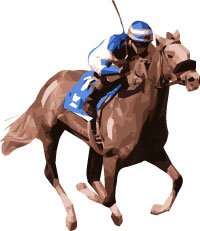The founder of the modern Olympics, Pierre de Coubertin, wrote an oath for the athletes to recite at each Olympic Games. During the opening ceremonies, one athlete recites the oath on behalf of all the athletes. The wording of the oath has changed over time, and an oath by judges, coaches and offcials has been added.
The Olympic Oath
"In the name of the athletes, we promise to take part in these Olympic Games, respecting and abiding by the rules and in the spirit of fair play. We all commit ourselves to sport without doping and cheating. We do this, for the glory of sport, for the honour of our teams and in respect for the Fundamental Principles of Olympism"
The Athlete Oath
The athlete to recite the oath is a member of the host team, and proclaims the oath while holding a corner of his national flag. The Olympic oath was first taken during the 1920 Olympic Games by Belgian fencer Victor Boin.
The Olympic Oath as instituted in 1920 was as following:
"We swear. We will take part in the Olympic Games in a spirit of chivalry, for the honor of our country and for the glory of sport."
In 1924, the oath was taken by French athlete Geo Andr`Prète, and here is his French version of the oath as taken from the 1924 Official Olympic Report.
"Nous jurons, dit-il, que nous nous présentons aux Jeux Olympiques en concurrents loyaux, respectueux des règlements qui les régissent et désireux d´y participer dans un esprit chevaleresque pour l`honneur de nos pays et la gloire du sport."
In 1936, the oath was spoken in German.
"Wir schwören, bei den Olympischen Spielen ehrenhafte Kämpfer zu sein und die Regeln der Spiele zu achten. Wir nehmen teil in ritterlichem Geist, zu Ehre unseres Landes und zum Ruhme des Sports"
There were several changes made in 1961: "swear" was replaced by "promise" and "the honor of our countries" by "the honor of our teams" in an effort to eliminate nationalism at the Games.
"In the name of all competitors, I promise that we shall take part in these Olympic Games, respecting and abiding by the rules that govern them, in the true spirit of sportsmanship, for the glory of sport and the honor of our teams."
In 2000, the oath was updated to included a pledge against the use of drugs at the games.
"In the name of all the competitors, I promise that we shall take part in these Olympic Games, respecting and abiding by the rules which govern them, committing ourselves to a sport without doping and without drugs, in the true spirit of sportsmanship, for the glory of sport and the honor of our teams."
For Tokyo 2020, the wording of the oath was again updated.
Oath by a judge or referee
In 1972, an Oath was taken by a judge or referee for the first time.
"In the name of all the judges and officials, I promise that we shall officiate in these Olympic Games with complete impartiality, respecting and abiding by the rules which govern them in the true spirit of sportsmanship."
Oath by a coach
In 2012, an oath was also taken by a coach of the host country.
"In the name of all the coaches and other members of the athletes' entourage, I promise that we shall commit ourselves to ensuring that the spirit of sportsmanship and fair play is fully adhered to and upheld in accordance with the fundamental principles of Olympism"
Trivia
- The athletes' oath was first taken by Belgian fencer Victor Boin at the 1920 Antwerp Games.
- In 2021, a male and female representative for the athletes, judges, and coaches each recited the oath.
Related Pages
- Olympic Creed & Motto
- Olympic Hymn
- Other Olympic Traditions


 Current Events
Current Events